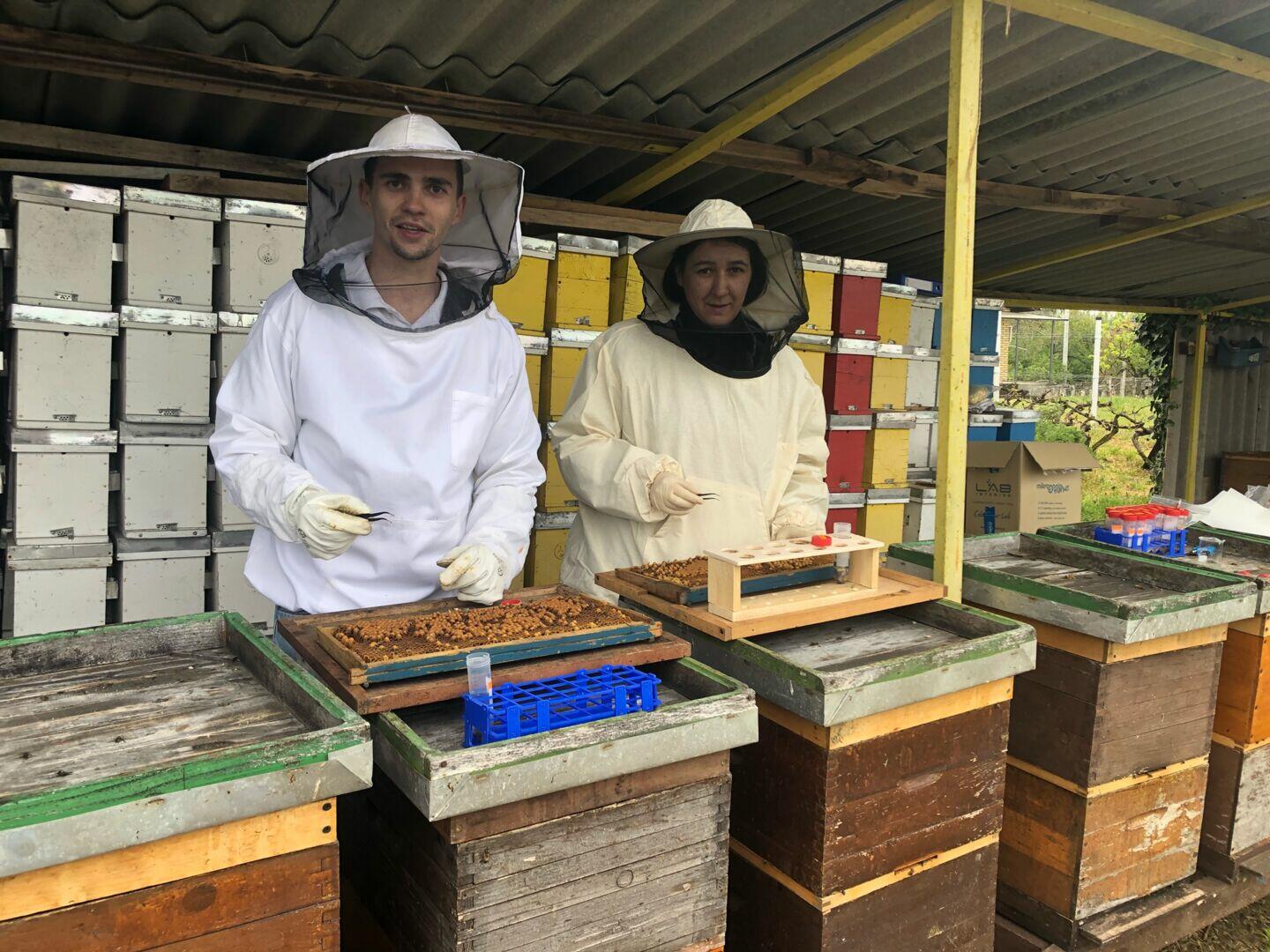The BeeConSel project, which is supported through the EEA and Norway Grants’ Fund for Regional Cooperation, stands out as it creates a tailor-made mating control system for honeybees, using scientific tools, knowledge, and experience from Norway and Sweden[1]. By bringing together a group of passionate bee lovers and experts determined to help spread their experience, this project is a force to be reckoned with.
What’s all the buzz about honeybees?
Bees are absolutely vital for the environment and to Europe's economy. According to the European Commission, pollinators, including honeybees, bumblebees and wild bees, ensure pollination for over 80% of crops and wild plants in Europe. That represents €22 billion each year to the European agriculture industry. However, over recent years and due to challenges such as monocultures, climate change, increased pollution, and use of pesticides, honeybee health has become a major challenge in many countries. Sharing knowledge and experience, across countries, on how to efficiently protect and preserve honeybees, plays an important part in tackling this.
The Norwegian Beekeepers' Association, who is a partner in the BeeConsel project, has a long experience with finetuning the selection of desired traits, such as disease tolerance, behaviour, and increased honey production. "This knowledge is important to take care of local subspecies, and to ensure they are adapted to their climate. Involvement and knowledge sharing from several different competence contributors strengthens this work, and the Norwegian Beekeepers' Association is extremely satisfied to be an active partner in BeeConsel," explains Camilla Larsen, General Secretary at the Norwegian Beekeepers' Association.
"The project's main goal is to transfer and adapt scientifically tested knowledge and experience about pair stations from countries in Scandinavia to countries in southern Europe that need it. This is important in the work to preserve bee subspecies."
Camilla Larsen, General Secretary at the Norwegian Beekeepers' Association.
BeeConsel establishes mating control within breeding programs to make locally bred queens more attractive to beekeepers. This will increase the efficiency of breeding programmes in the selection of traits and ensure higher survival rates of the local honeybees.
Inclusiveness at the heart of the project
By actively involving participants through meetings and workshops, and building a community of bee experts across borders, BeeConsel paves the way for a bee-friendly future. Earlier this year, students and researchers from Croatia, UK, Slovenia and North Macedonia, were invited to participate in the project to further enhance and share their knowledge and experience with bee conservation.
"We strongly believe that it is important to actively involve students and researchers in our project to incorporate science and education into the continued development and sustainment of life after the project activities and outcomes are completed" says
Špela Kodre, project officer at the BeeConSel.
BeeConSel arranged meetings and facilitated workshops to share the methodology and understand the technology used in bee conservation; to help save the future of bees. ‘The most valuable part of involving students and researchers in project activities is the valuable discussion of our progress and review of future steps from their perspective', says Kodre.
 "I think it’s been a good experience for me, and I got new information from experts that I can apply after college" explains Filip, a student at the faculty of Agro-Biotechnical Sciences Osijek in Croatia after the visit. By building professional networks and creating awareness through inclusiveness, BeeConSel is taking one step forward towards keeping our local bees safe – and our future.
"I think it’s been a good experience for me, and I got new information from experts that I can apply after college" explains Filip, a student at the faculty of Agro-Biotechnical Sciences Osijek in Croatia after the visit. By building professional networks and creating awareness through inclusiveness, BeeConSel is taking one step forward towards keeping our local bees safe – and our future.
The € 34.5 million Fund for Regional Cooperation supports cooperation projects focusing on knowledge sharing, exchange of good practice and capacity building across the priority sectors of the EEA and Norway Grants 2014-2021.
The Fund for Regional Cooperation has had one call for proposals, seeking transnational project ideas within the 23 programme areas of the EEA and Norway Grants. Over 700 applications were submitted when the Fund was launched in 2018, involving thousands of entities across Europe.
View the infographic for a full overview of the geographical participation in the selected projects.
Discover everything about the Fund for Regional Cooperation with this Online Magazine.
[1] The Fund for Regional Cooperation is not limited to states involved in the EEA and Norway Grants. More information can be found here.
